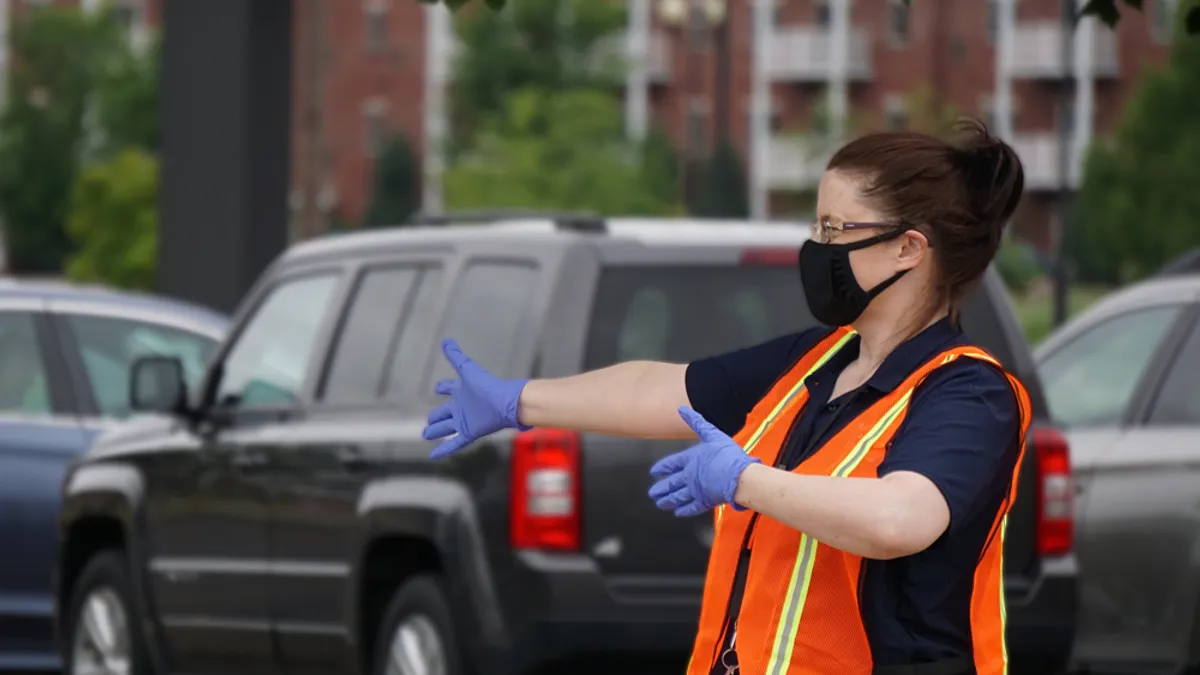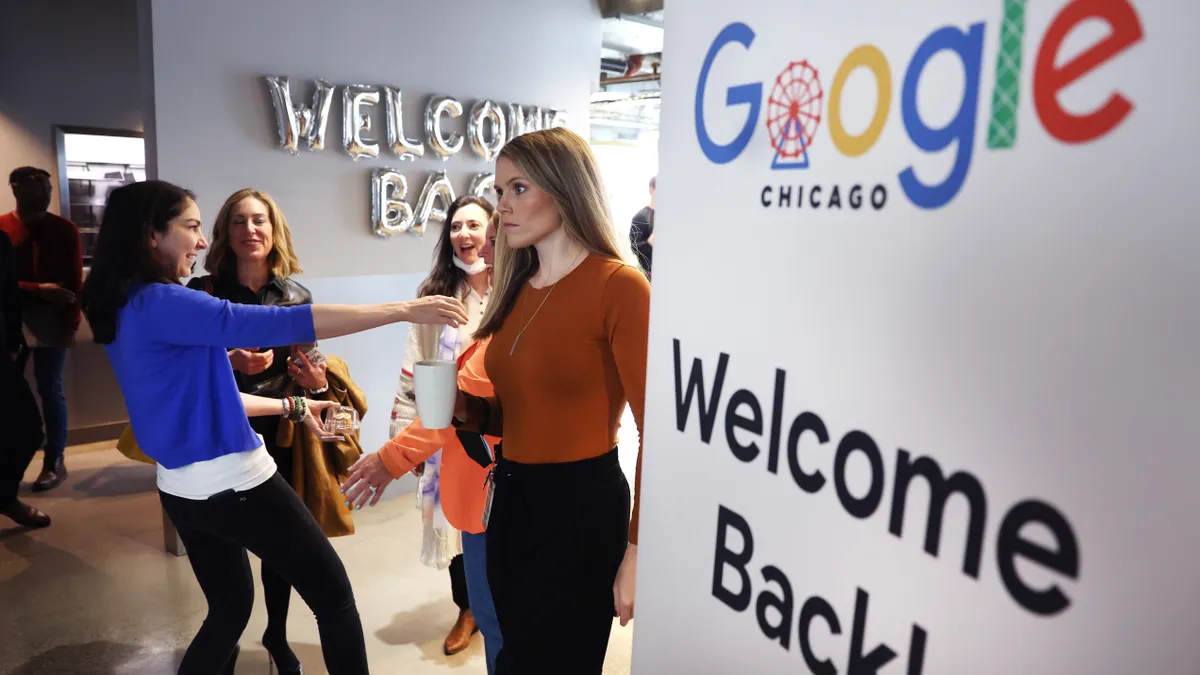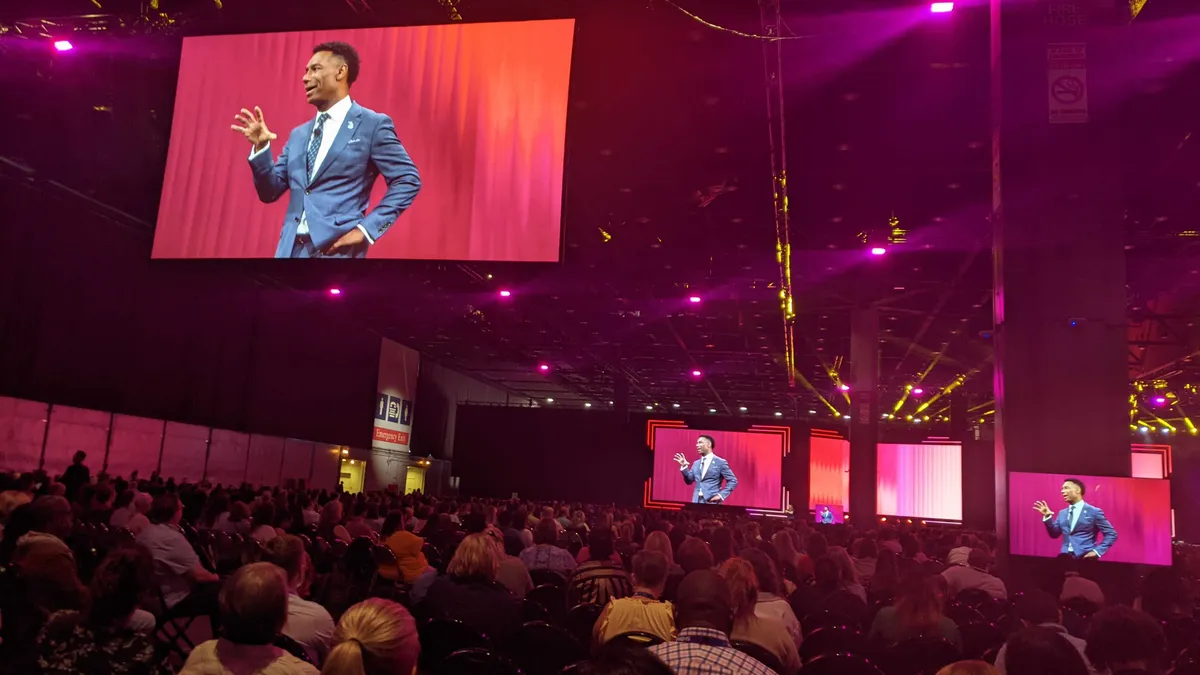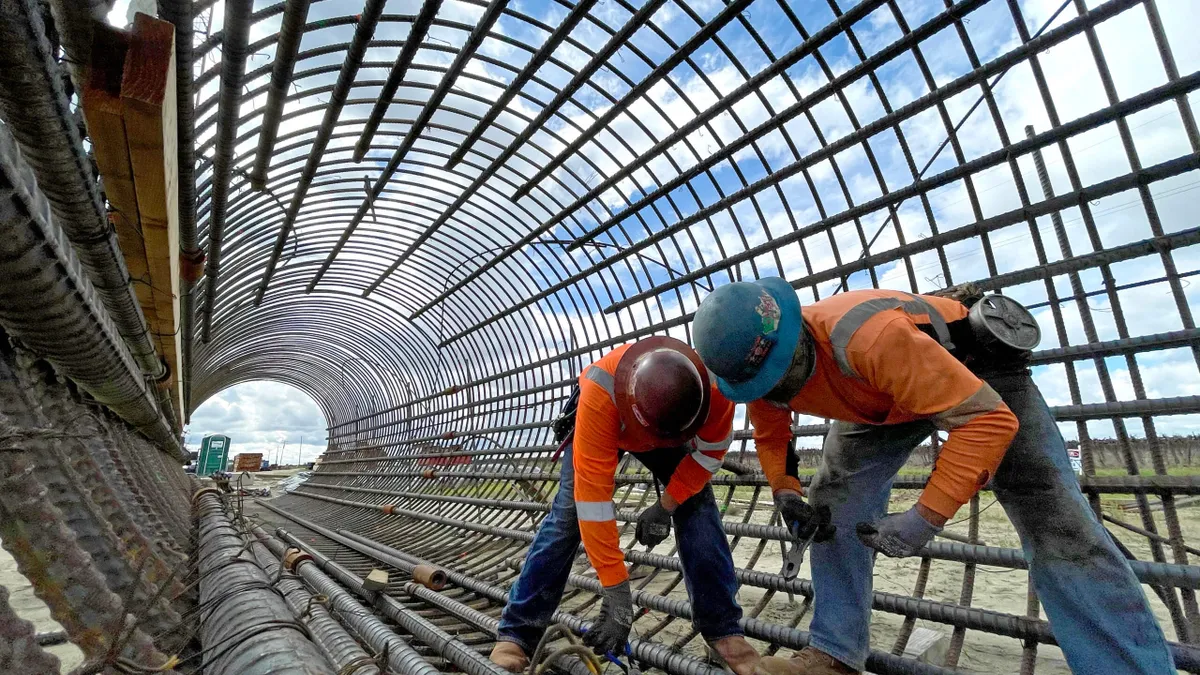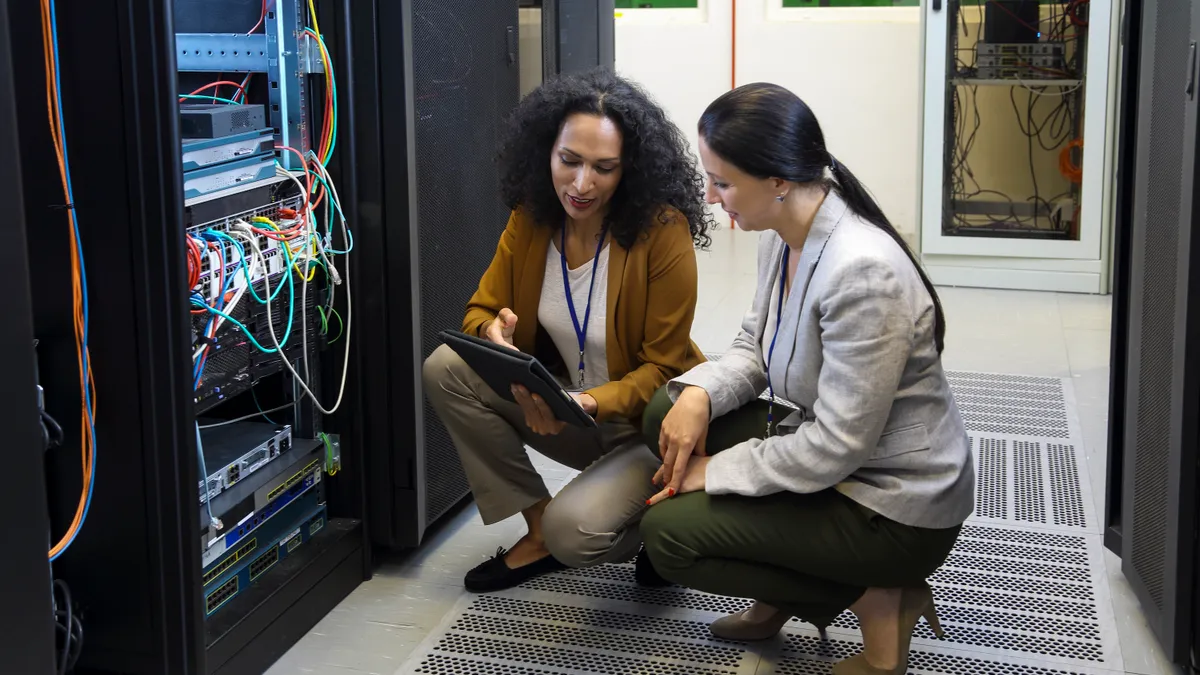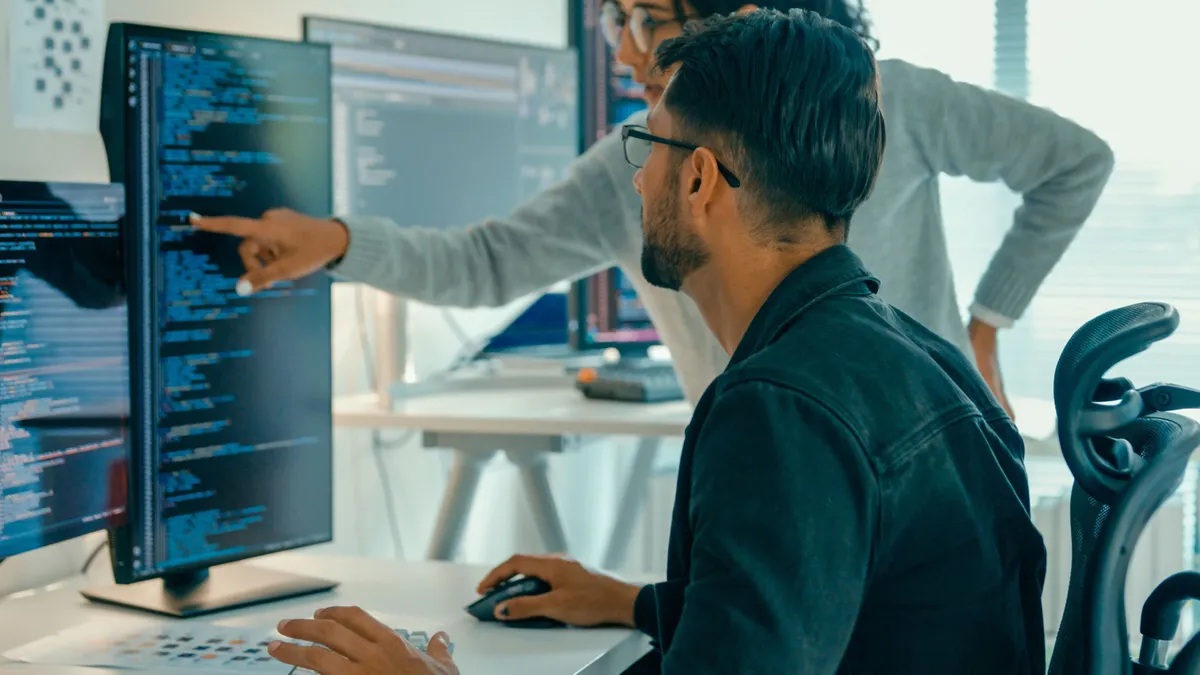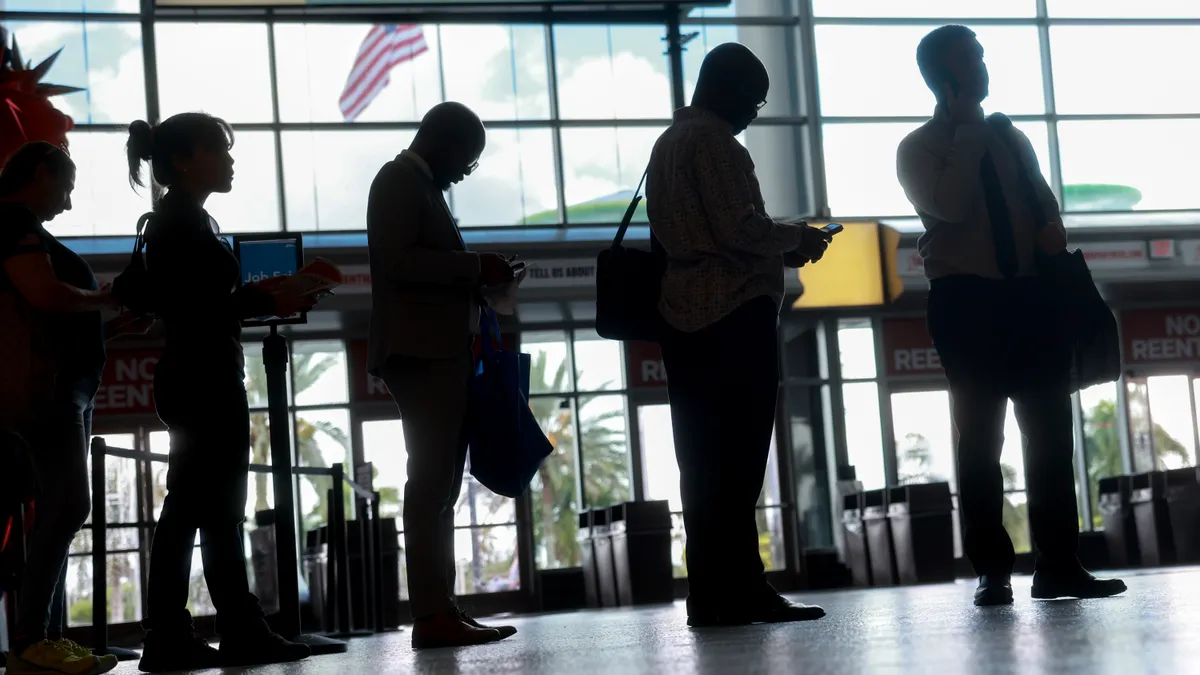As the pandemic shut down offices and other worksites around the country, it took many key pieces of the usual workday with it. This has notably complicated the recruiting process, with many organizations accelerating their adoption of recruiting technology.
But while many job fairs and hiring processes went virtual, the Wisconsin Workforce Development Board set up a series of drive-through job fairs — a move that has been well-received by employers and job seekers alike.
"We heard that there was a group in Lincoln, Nebraska, that was putting together a drive-through job fair that had had good results," Bobbi Miller, business solutions manager at the Fox Valley Workforce Development Board, said. "We decided to have our first one in July, and all 11 boards across the state of Wisconsin partnered on that first job fair [...] It gave good clarity to both companies and job seekers that on one day, one time, we were going to have a concentrated effort to get all sorts of opportunities out to job seekers."
Miller said nearly 700 companies and 4,000 jobs seekers statewide participated in the July event, so they decided to keep running them. Another one held in September had similar participation across 21 locations, she said.
The state board, run through 11 regional chapters in partnership with the state government, focuses on a few key labor objectives: operating job centers, administration of government employment programs and, more broadly, connecting employers with individuals looking for work. Before the pandemic, Miller said the organization ran a fair amount of traditional, in-person job fairs. Once it hit, they needed to find a new way to facilitate the job market. Miller said she felt that the virtual option would not meet the needs of employers, or of those who recently lost their jobs, such as those in food service or hospitality, for example.
"There's a learning curve, like so many things, and it was that uncomfortable moment of [being in a virtual environment], the system of getting people from place to place, it didn't necessarily feel very welcoming. At a time when stress was high, and people didn't know what to think," they were not sure it would facilitate interaction between the two parties, Miller explained, adding that cost and implementation logistics were also a barrier to adopting a virtual platform.
With that in mind, Miller’s goal with the drive-thru job fair was to design an event that made it as simple as possible for both job seekers and employers to connect.
Job seekers were directed to show up at the parking lot in their car, where they would be directed to a staff member wearing a mask, gloves and goggles who would hand them a packet of flyers from the employers that were hiring. Those flyers contained company information, listed job openings and, in most cases, contact information so prospective applicants could reach out as a way of replicating the informal learning opportunity that comes with traditional job fairs. For employers, it was as simple as putting together a flyer.
Oshkosh Coil Spring’s experience through the pandemic is typical of many employers in the area, according to Shelly Hanson, an HR generalist for the company. At first, business slowed for the manufacturer, but then it picked up again as the world reopened. Hanson was then tasked with finding 10 new hires for the roughly 100-person company, she said, and was recently asked to add another 15.
Initially, without the ability to use traditional in-person recruiting methods, Hanson said she began sourcing candidates through recruiting sites and the unemployment registry, with mixed results. When she heard about the drive-through job fair and how much success it had, she said she found the opportunity intriguing and relatively easy to get involved.
"They actually [sent] a really nice flyer that went out with the invitation, indicating all the things you should have on your job fair flyer," Hanson told HR Dive. "So it was super easy to design it based on that [...] I just pulled some information off of our company website and then incorporated what we were looking for in regards to employees at this time. [...] The next day, I noticed the traffic on our website had already increased."
Hanson said the company attributes a 31% increase in website traffic to participation in the drive-through job fair. She has already hired some individuals and has more in the hiring process as of late-September and said she feels it has been great for "getting our name out there."
"I have 13 interviews over the next couple of days," she said. "I had eight yesterday." Most of the company's interview process is conducted over a phone but it included socially-distanced final interviews or site visits as well.
The drive-through job fair also helped the company gain exposure in a locally-focused way that would be hard to replicate through online job boards, according to Hanson. "We're a small family-owned company," she said. "We were able to reach even further than our own community, because most people in Oshkosh know Oshkosh Coil Spring, but people outside of the community do not."
At Great Northern, an Appleton-based manufacturer with thousands of employees, change has been the only constant in its workforce needs. Recruiter Lauren Basler said the company experienced fluctuations due to changes in demand across the organization’s product suite and employees catching the virus or quarantining if a member of their household tested positive.
"Most of our positions are manufacturing production and maintenance positions," Basler told HR Dive. "But of course, we have the upper management levels as well as [vice presidents and executives]" at company headquarters. "We're just kind of rolling with the punches at this point, and hoping to find great candidates that want to come and stay with us." For the drive-through job fair, she said the HR team consulted with the marketing department to design the flyer.
Basler added that at first the company chose to go fully virtual with its hiring process as a result of the pandemic, though it did make exceptions if candidates did not have reliable internet access or otherwise requested accommodations. Adding the virtual process allowed them to adopt a hybrid model and reach more people for key positions.
"It has definitely worked out just because there may be an individual that’s working weird hours and it's really difficult to schedule with them," she said. "So before when we were having them come to our location, they might have an hour drive after working an 8- or a 10-, or a 12-hour shift, and then trying to interview and test with us. Now it's a little bit easier that maybe where they currently work is much closer to their home, and it's a five or 10-minute drive home, get the computer set up, and then be ready for an interview."
Because of the need to gauge candidates’ knowledge of a manufacturing environment and procedures, Great Northern and Oshkosh Coil Spring, both family-owned businesses, kept an in-person component to their hiring process when they could to ensure familiarity and fit.
"The interviews were being conducted in our lobby where no one was really coming and going anyway," Basler shared. "So we were keeping it very secluded for individuals that had to come into our location [...] When we have candidates come, they wear masks, we wear masks. We have them sign a waiver making sure that they haven't traveled recently [...] we are sanitizing everything prior to when they come. When they leave we sanitize, and we are enforcing the mask rule."
"It's just necessary," Hanson said of the face-to-face component, even if they moved it to a later stage of the process. "They have to see what they're doing, or they're not going to understand, and I don't want them coming in thinking that they're just putting a bolt on a washer or something. It's involved."
Basler said that while traditional job fairs were generally where she found active job seekers, the drive-through job fair’s less-involved process appeared to be attractive to that group as well as others, including people who were already working and interested in a better position — the elusive passive candidate.
The idea that Miller borrowed from Nebraska is spreading to other states, as New Jersey is holding a drive-through job fair in mid-October. Given the importance of talent to organizational success, Basler said she could see the strategy still being valuable even outside of the pandemic.
"This is something that transcends across all industries," Miller said. "I think we all have to get out of our heads the idea that recruitment always looks [a certain way]. People say 'it must look like this in order to be effective and work well.' But why?"


